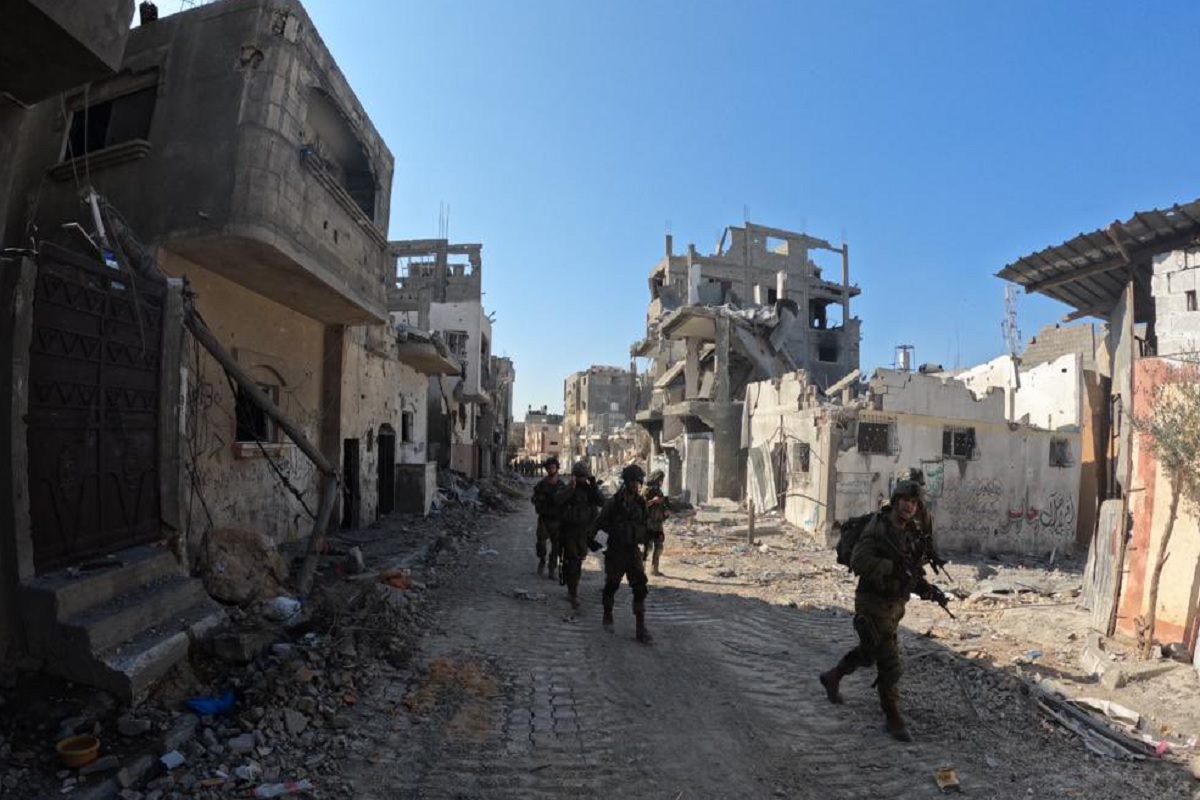‘US will continue to work hard’, White House dismisses reports of Israel-Hamas deal to free hostages in Gaza
Dismissing reports of a US-brokered deal, the White House on Saturday rejected claims of a potential agreement between Israel and Hamas. The purported deal was said to involve the release of dozens of women and children held in Gaza in exchange for a five-day pause in hostilities.
The White House’s response indicates a denial of any active involvement or agreement in the reported negotiations. The situation in the region remains complex, with ongoing tensions between Israel and Hamas, and the denial from the White House suggests that any diplomatic efforts or agreements are not officially recognized or confirmed. 
The reported deal, if accurate, would have represented a temporary humanitarian gesture amid the longstanding conflict. However, the White House’s dismissal underscores the need for caution in accepting unverified reports and highlights the complexities involved in navigating diplomatic efforts in the Israel-Palestine conflict.
As the situation continues to evolve, clarity on diplomatic initiatives and potential agreements will be crucial for understanding the dynamics of the conflict and the prospects for a lasting resolution. The denial from the White House adds a layer of uncertainty to the reported negotiations, leaving the status of any potential deal in question.
The White House National Security Council spokesperson clarified on the reported Israel-Hamas deal, stating, “We have not reached a deal yet, but we continue to work hard to get to a deal.” This statement acknowledges ongoing diplomatic efforts while emphasizing that an official agreement has not been finalized at this point.
The acknowledgment of ongoing negotiations aligns with the complexity of diplomatic initiatives in the Israel-Palestine conflict. The spokesperson’s remark indicates that efforts are still underway to find a resolution that could potentially address humanitarian concerns and contribute to a temporary pause in hostilities.
The careful wording underscores the sensitivity of the situation and the diplomatic challenges involved in brokering agreements between conflicting parties. It also highlights the importance of continued efforts to find common ground and facilitate dialogue to address the longstanding issues in the region.
As the situation remains fluid, updates from official sources will be crucial in providing clarity on the progress of diplomatic negotiations and any potential agreements that may emerge. The confirmation that discussions are ongoing signals a commitment to diplomatic channels to navigate the complexities of the conflict and explore avenues for a possible resolution. 
The reported tentative deal involving Israel, Hamas, and the United States, as outlined in a six-page agreement, suggests a potential arrangement to freeze combat operations for at least five days. The deal would involve the release of dozens of women and children held hostage in Gaza, with an initial release of 50 or more hostages occurring in smaller batches every 24 hours. However, it’s important to note that the White House National Security Council spokesperson has stated that a final deal has not been reached, and efforts are ongoing to reach an agreement.
The reported outline of the deal was crafted during weeks of talks in Doha, Qatar, involving Israel, the United States, and Hamas. Qatari mediators represented the parties indirectly during these talks, as stated by Arab and other diplomats cited by The Washington Post.
Amid escalating pressure to secure the release of hostages held by Hamas, Israel’s Prime Minister Benjamin Netanyahu is facing a multifaceted challenge. Supporters of nearly 240 hostages marched from Tel Aviv to Jerusalem, demanding government action and expressing frustration at limited meetings with Netanyahu. The families emphasized the urgency of prioritizing the safe return of the hostages, with one relative stating that resolving this issue could be a significant victory for the state of Israel in Netanyahu’s current political situation.
Follow Us









